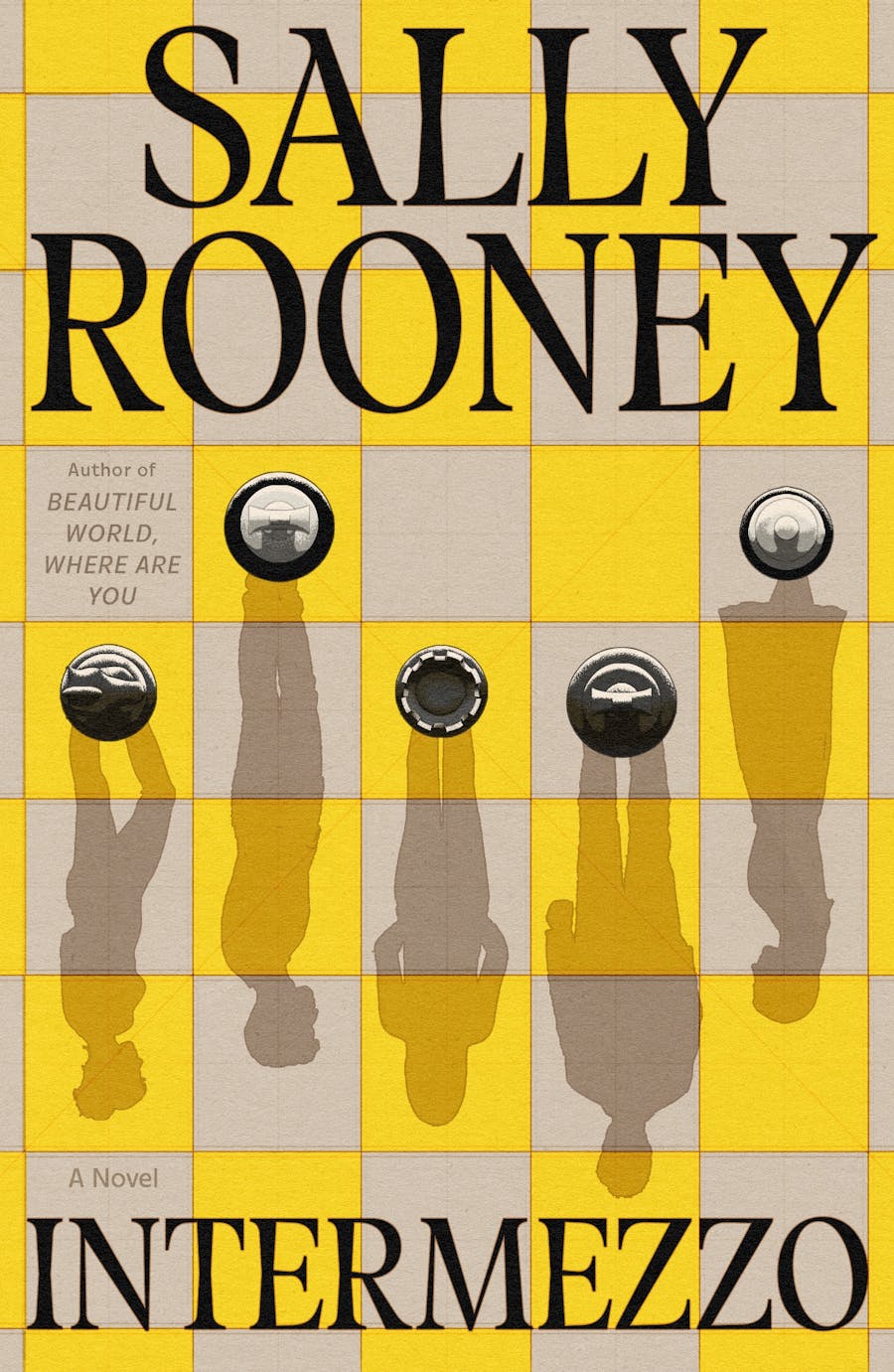4thace reviewed Intermezzo by Sally Rooney
Men working through issues about loss and love
4 stars
I pre-ordered this book when I heard it was coming out. It's a little bit different from this author's previous three books in that it focuses mainly on the relationship between two male characters, the brothers Peter and Ivan. The two of them are working through the grief caused by recent death of their father, along with their issues concerning dominance along with a little streak of violence. The main secondary relationships are between the two brothers and their romantic partners. Peter had a long-term relationship end unexpectedly after his girlfriend Sylvia suffered injuries in an accident and current girlfriend Naomi who is about 10 years younger than he. Between the confusion with the two girlfriends and his work stresses and his recent grief he's taken to taking pills and drinking to excess. Younger brother Ivan is a high-ranking chess player who meets a woman during a an exhibition game and immediately has a relationship with her even though she's about 14 years older than him. This woman Margaret has a separation from her husband because of mental issues of his own, but the arrangement has not been formalized. This set up a sort of a parallel structure between the two mismatched age relationships of Peter and Naomi on the one hand and Margaret and Ivan on the other. All of these characters are drawn with some degree of sympathy and also with a careful attention to their various shortcomings and faults .In one of these there's much more of a power imbalance than in the other.
Much of the story is told in in the form of dialogue, along with quite a few long unbroken paragraphs of stream of consciousness prose experienced via the point of view of one of the major characters. Within one of these paragraphs there may be inner thoughts, bits of dialogue, random observations, stated intentions for action, or details of description, all mixed together. At times their unfiltered interior monologue is at odds with the character's speech or action. It's hard not to notice the similarities and differences between this author's use of that technique and the ones who first pioneered it in the early 20th century.
The tone is realistic and the bits of narration are relatively matter of fact. There are a number of scenes of a sexual nature for all of the couples, presented in the author's trademark style of dispassionate description. I think these scenes are for a mature reader, but don't require strong trigger warnings. They are important for story reasons, not gratuitous, depicting character, and providing key plot points. There is one scene of physical violence between the brothers, too, but it is relatively restrained. When it happens the reader is left wondering whether it constitutes a final rupture in relations between the two or not but and by the end of the story things are sorted out. To me the motif about love relationships across age boundaries seemed rather mildly transgressive, if anything, but perhaps it is a matter of a slightly different culture from mine. It felt to me as though the way this novel ended featured muted fireworks compared to some of the author's other books. Here there are confrontations and some strong feelings expressed, but in the end everything just gets smoothed out. I think some other readers might prefer to see higher stakes. By the end I was wondering whether some of the novelist's decisions were colored by human interactions compared to a chess game, with sacrifices, risks taken, plans on top of other plans depending on what one's adversary is going to do. The analogy is not perfect in that people will hide what their doing in ways chess doesn't allow, unlike a game like poker.
As an epilogue, the author lays forth the many literary borrowings and illusions that she managed to incorporated into the text. It was as though she did not want to lift these lines without acknowledging them and being called out for it. There are a few other details in the book that felt as though they might play a bigger role in ratcheting up the tension, things that seemed as though they were going to constitute a subplot, but which ultimately led to no big payoff. When one of the characters mused upon feelings regarding self-harm I did not take them too seriously. I will dock the book a star for not being quite as daring as it could have been, but I'm still glad I read it.

